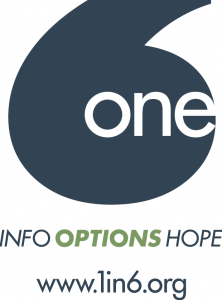You can leave this site quickly.
Learn more about Internet safety.
1in6 Thursday: Living Can Be Much More than Just Surviving
One of the most moving moments I remember from the book and film Twelve Years a Slave is when Solomon Northup, a free-born black man, who was kidnapped and sold into slavery in 1841, tells a fellow captive "I don’t want to just survive…I want to live."
By "living," he was referring to connection—to the love of his absent family and his community of friends; to the potential of a daily routine, over which he had some sense of control; and to the belief in his power to make positive changes in his life. He wanted more than to just "survive" the grief of the loss of that connection. He was determined to use his awareness of that loss to motivate his struggle to regain a positive, healthy life—which he eventually did.
As I think about my past year and the improvements I want to make in the next year, I can’t help but be inspired to think of that as a useful model for change.
Don’t get me wrong. I know physical and emotional survival is a necessary foundation for life. Few people in the United States today will likely experience anything close to the abject powerlessness portrayed in Northup’s description of slavery (though shockingly, some certainly do.)
Even for Northup, his priority each day was about navigating the steps to assure physical survival—but always with an eye toward reclaiming the connected life he knew existed outside his present misery.
Nearly any man or woman who has experienced the betrayal of childhood trauma is acquainted with the challenge of managing the resulting confusion and pain.
By training, we men, especially those of us who experienced childhood trauma (most of us, really), often settle for just silently, numbly surviving: defending against overwhelming emotions by whatever means necessary.
Still, many of us often feel powerless, even when we may appear fearless or even inspire fear among others. (Perhaps we all could benefit from making that a resolution this year – to recognize the impact our defenses have on those in our families and circles.)
Men aren’t given a lot of permission by society to feel sad, or hurt or vulnerable. So when we decide to take on healing from childhood trauma, it’s important to allow ourselves the time and space and to find a supportive network where we can experience a full range of emotions, including the negative and painful ones. No matter what we learned growing up about being a man, that full range of emotions is our right as humans.
But the key part of that is "full range." Experiencing sadness doesn’t mean living in sadness. Experiencing grief or loss or betrayal doesn’t have to mean giving up positive emotions. It doesn’t require "just surviving."
For me, the biggest part of healing from my own childhood trauma has been taking back the reins of my connections—being conscious, responsible and safe about what I do, where I go, who I spend time with, how I behave. We’re all capable of making poor choices, even hurtful choices. Claiming power involves recognizing both our right to make our own choices and our duty to be accountable for the consequences of those choices. In my mind, that is the difference between being powerful and powerless.
When it comes right down to it, every second I’m aware of those reins in my hands, I feel grateful. Every day, no matter how constrained my life has been, there have always been little ways that I’ve taken control over my existence. When I let myself see them, focus on them, enjoy them, I can experience a sense of power and well-being.
And like my father always used to say, "that’s what I call livin!"
 - By Peter Pollard
- By Peter Pollard
Peter Pollard is the Professional Relations & Communications Director for 1in6, Inc. Peter previously worked for 15 years as a state, child-protection social worker and was the Public Education director at Stop It Now! Since 2003, he has served as the Western Massachusetts coordinator for SNAP (Survivors Network of those Abused by Priests) and also does work for a Certified Batterers Intervention Program. See Peter’s portrait in The Bristlecone Project exhibit.
The mission of 1in6 is to help men who have had unwanted or abusive sexual experiences in childhood live healthier, happier lives.
1in6's mission also includes serving family members, friends and partners by providing information and support resources on the web and in the community.
Joyful Heart and 1in6 invite you to visit 1in6.org for info, options and hope, and to learn more about our partnership and Engaging Men initiative here.
The views expressed above are not necessarily those of the Joyful Heart Foundation or 1in6.




Your Voices